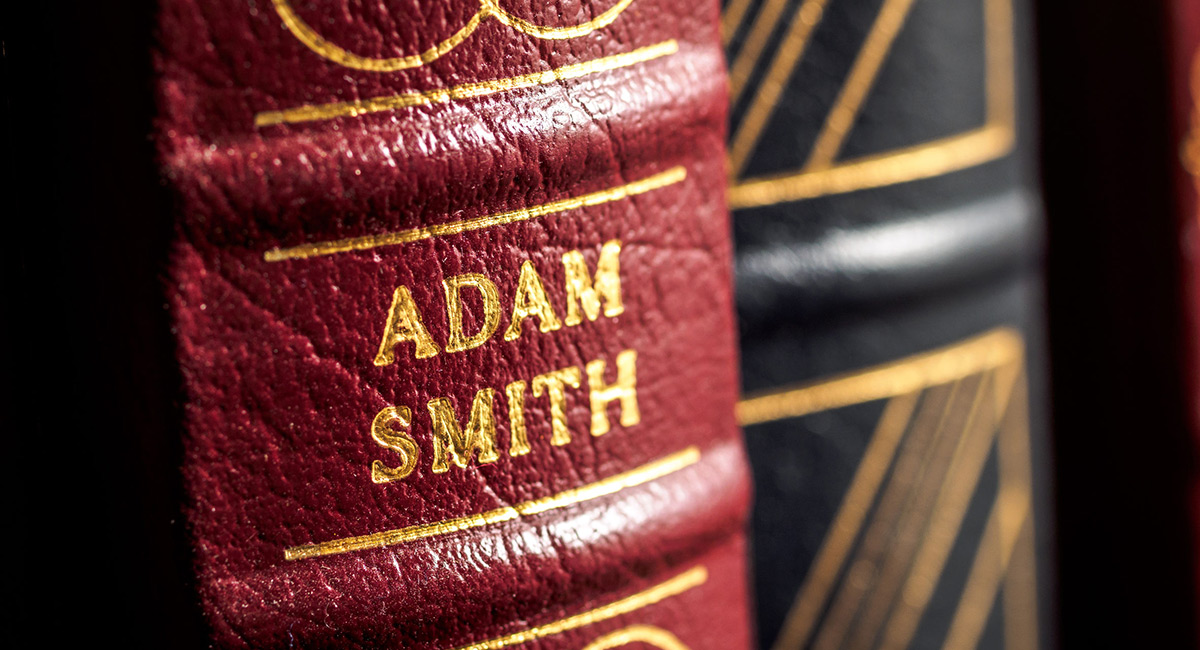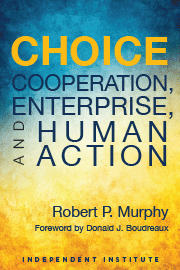No American must be reminded that the year 1776 was momentous. But few Americans realize just how momentous it was. That year witnessed the publication not only of Thomas Jefferson’s eloquent Declaration of Independence; it was also the year of Adam Smith’s Inquiry into the Nature and Causes of the Wealth of Nations.
Jefferson’s document founded a new nation: the United States. Smith’s book founded a new discipline: economics. Both works were inspired by the spirit of liberty.
Jefferson wrote that individuals “are endowed by their Creator with certain unalienable Rights, that among these are Life, Liberty and the pursuit of Happiness. That to secure these rights, Governments are instituted among Men.”
Note carefully Jefferson’s words. Our rights aren’t given to us by government. The state is merely an organization for helping us, as individuals, to protect our rights. Attempts by government to act beyond this narrow purpose are violations of the very rights it is instituted to secure.
Freedom equals productivity
Jefferson and America’s other founders understood that individuals who are free to conduct their own affairs as they see fit are far more likely to be productive and to form mutually advantageous social and economic arrangements than if they must run a gamut of government-imposed prohibitions and requirements.
Adam Smith was of the same mind when he celebrated, with an eloquence equal to that of Jefferson, “the obvious and simple system of natural liberty” in which all special privileges and restraints on consensual economic activity are “completely taken away.”
With this liberty, wrote Smith, “Every man, as long as he does not violate the laws of justice, is left perfectly free to pursue his own interest his own way, and to bring both his industry and capital into competition with those of any other man, or order of men. The sovereign is completely discharged from a duty, in the attempting to perform which he must always be exposed to innumerable delusions, and for the proper performance of which no human wisdom or knowledge could ever be sufficient; the duty of superintending the industry of private people, and of directing it towards the employments most suitable to the interest of the society.”
Founders had confidence in freedom
It’s often said that America’s founders had “faith” in freedom. But because of Smith’s work, a better term is confidence in freedom. Smith explained how private property rights, freedom of contract, economic competition, and market prices peacefully direct each individual who is pursuing his own goals to achieve those goals only by helping countless other individuals to achieve their goals. The result is a beautiful process of mutual assistance.
In one of Smith’s most quoted passages, he observed that “It is not from the benevolence of the butcher, the brewer, or the baker, that we can expect our dinner, but from their regard to their own interest.” Businesses in free markets prosper only by satisfying consumers – and the more that businesses satisfy consumers, the more those businesses, their workers, and their customers will prosper.
And while Smith was a realist who knew that markets always work imperfectly, he argued that in most cases government intervention makes matters worse. Even if politicians were miraculously to become immune to pressure from special-interest groups, their knowledge of how best to use scarce resources is far too scant to enable them, or the bureaucrats whom they employ, to improve upon market outcomes.
In 2020, alas, this deep wisdom from 1776 is largely lost. Politicians and pundits today, from left to right, see ordinary men and women as hapless victims of forces beyond their control. These pathetic creatures, it is assumed, need not protection of their rights but, instead, provision of their sustenance.
American prosperity at stake
People across the political spectrum increasingly believe that the state must superintend and often override the choices that we individuals make as workers, entrepreneurs, and consumers. Those with this view are blind to the enormous prosperity created by free markets. If you doubt this prosperity, just look around your house and marvel at the appliances, the pantry full of food, and the closets full of clothing that are, for most Americans, commonplace.
Those with this expansive vision of state power are blind also to the dangers that power poses to this prosperity. As Adam Smith taught – and as Jefferson understood – markets saddled with tariffs, poisoned with subsidies, and buffeted about by the inevitable arbitrariness of bureaucratic interventions cannot possibly produce as much prosperity for ordinary people as is produced by free markets.











